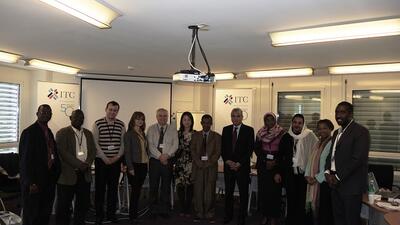

Acceder a los mercados mundiales a través de las cadenas de suministro (en)
Small and medium-sized enterprises (SMEs) that belong to supply chains have a better chance of exporting to global markets, according to experts gathered at a recent discussion on SME internationalization at the International Trade Centre (ITC).
At a workshop on ‘Connecting local enterprises to global markets’ on 8 October in Geneva, Switzerland, speakers focused on understanding the situation of SMEs and micro enterprises in countries around the world, and they discussed ways to increase their exports. The session was designed in line with the Swiss Programme for Research on Global Issues for Development.
‘Productivity is [crucial] in a firm’s internationalization,’ said Giorgia Giovannetti, a professor at the European University Institute, who delivered the keynote speech. ‘More productive firms self-select into the foreign market and they can afford entry costs. Small firms, if involved in production chains, can take advantage of reduced costs of entry that enhance the probability to export.’
SMEs can benefit by linking to a supply chain because the fixed costs between firms to produce goods are likely to be lower, Ms. Giovannetti said.
In South Africa, a relatively small share of total output is exported, with the majority of exporters shipping less than 30% of total output. The top 1% of exporters account for 80% of export volume in the country, according to Volker Schöer, a professor at the University of the Witwatersrand, South Africa.
In Ethiopia, the national government has established institutions to provide targeted support to sectors, such as textiles, leather, chemical, and food and beverages.
Tadele Ferede of Addis Ababa University, Ethiopia, said these institutions support the development of specific sectors through technology and knowledge transfer, upgraded production methods, and marketing.
There are issues that still need to be addressed, Mr. Ferede said, pointing to a shortage of dependable suppliers, uncompetitive prices, inability of exporters to meet deadlines and a lack of product quality. More institutional support and market information is needed, as well as better telecoms services, he said.
The speakers emphasized that clusters and networks can help spread knowledge and skills among SMEs. Involvement in value chains also gives small producers the opportunity to understand and comply with international standards and thereby enhance product quality.














